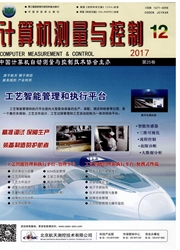

 中文摘要:
中文摘要:
为了有效提高ISG重度混合动力汽车(full hybrid electric vehicle assisted by an integrated starter generator, ISG-FHEV)发动机和电机驱动系统效率以及整车的燃油经济性,设计了一种等效燃油消耗最小控制策略(equivalent consumption minimization strategy, ECMS);在分析IsG—FHEV功率分流模式的基础上,同时考虑发动机和电机驱动系统效率,构建出包含发动机和电机驱动系统的功率分配、ISG电机和主电机间的功率分配两个控制变量的整车等效燃油消耗最小目标函数;引入庞特里亚金极小值原理(pontryagin’s minimum principle,PMP)并加入电池SOC偏差控制确定等效因子;最后,进行了仿真和对比分析;结果表明,与基于规则的控制策略相比,发动机效率提高9%,ISG电机和主电机总效率提高11.4%,百公里耗油量降低9.98%。
 英文摘要:
英文摘要:
In order to effectively improve the drive efficiency of the engine and motor and the whole vehicle fuel economy for Full hybrid electric vehicle assisted by an Integrated Starter Generator (ISG-FHEV), this paper designed an equivalent consumption minimization strategy (ECMS). Considering the engine and the motor drive system efficiency based on the analysis of ISG-FHEV power split mode, the equivalent fuel consumption minimization objective function containing two control variables which are power distribution between the engine and motor drive system and the lSG motor and the main motor was constructed. By introducing Pontryagin' s Minimum Principle (PMP) and the deviation control of battery state of charge (SOC) to determine the equivalent factor. Finally, we carried on the simulation and comparative analysis. The simulation results show that engine efficiency increases 9%, total motor efficiency is up 11.4%, fuel consumption to travel 100 km decreases 9.98% compared with the Rule--based control strategy.
 同期刊论文项目
同期刊论文项目
 同项目期刊论文
同项目期刊论文
 期刊信息
期刊信息
